10 Best Herbal Decoctions For Premenstrual Syndrome

Herbal decoctions have been traditionally used to alleviate symptoms of premenstrual syndrome (PMS), offering a natural alternative to conventional treatments.
Commonly used herbs include chamomile, ginger, and sage, which are believed to help reduce bloating, mood swings, and cramps. These decoctions work by balancing hormones and promoting relaxation through their calming and anti-inflammatory properties. Preparation typically involves simmering the dried herbs in water for several minutes, allowing the active compounds to be extracted.
While generally safe, it is advisable to consult a healthcare provider before starting any herbal regimen, especially for those with underlying health conditions or taking other medications.
Table of Contents
- 1. Chaste tree (Vitex agnus-castus)
- 2. Turmeric (Curcuma longa)
- 3. Stinging nettle (Urtica dioica)
- 4. Valerian (Valeriana officinalis)
- 5. Black cohosh (Cimicifuga racemosa)
- 6. Heartworts (Leonurus cardiaca)
- 7. Lemon balm (Melissa officinalis)
- 8. Black cumin (Nigella sativa)
- 9. German chamomile (Chamomilla recutita)
- 10. Maypop (Passiflora incarnata)
1. Chaste tree (Vitex agnus-castus)

Vitex agnus-castus, commonly known as chasteberry, has been traditionally used in herbal medicine to support hormonal balance and alleviate symptoms of premenstrual syndrome (PMS).
Herbal decoctions made from the fruit of the Vitex agnus-castus plant are often prepared by simmering the dried berries in water for several hours, allowing the active compounds to infuse into the liquid. Studies suggest that chasteberry may help regulate menstrual cycles and reduce common PMS symptoms such as mood swings, breast tenderness, and bloating. The herb is believed to influence the pituitary gland and support the hypothalamic-pituitary-ovarian axis, which plays a key role in hormonal fluctuations.
While generally considered safe, it is advisable to consult a healthcare provider before using chasteberry, especially for individuals with hormone-sensitive conditions or those taking other medications.
2. Turmeric (Curcuma longa)

Curcuma longa, commonly known as turmeric, has been traditionally used in herbal medicine for its potential health benefits, including its role in managing premenstrual syndrome (PMS).
The active compound in turmeric, curcumin, possesses anti-inflammatory and antioxidant properties that may help alleviate common PMS symptoms such as bloating, mood swings, and cramps. Herbal decoctions made from Curcuma longa are often prepared by boiling the rhizome in water, allowing the beneficial compounds to be extracted into the liquid. Studies suggest that regular consumption of turmeric decoctions may help regulate hormonal imbalances and reduce menstrual discomfort.
However, it is important to consult with a healthcare provider before using turmeric as a treatment for PMS, especially for those with underlying health conditions or taking medications.
3. Stinging nettle (Urtica dioica)

Urtica dioica, commonly known as stinging nettle, has been traditionally used in herbal medicine for its potential benefits in alleviating symptoms of premenstrual syndrome (PMS).
Herbal decoctions made from the leaves and stems of Urtica dioica are believed to help reduce bloating, mood swings, and breast tenderness associated with PMS due to their high content of minerals and anti-inflammatory compounds. Studies suggest that the plant's ability to support hormonal balance may contribute to its effectiveness in managing PMS symptoms. When prepared as a decoction, Urtica dioica is typically simmered for several minutes to release its active constituents into the water.
However, it is important to consult a healthcare provider before using this herb, especially for individuals with existing health conditions or those taking medications.
4. Valerian (Valeriana officinalis)
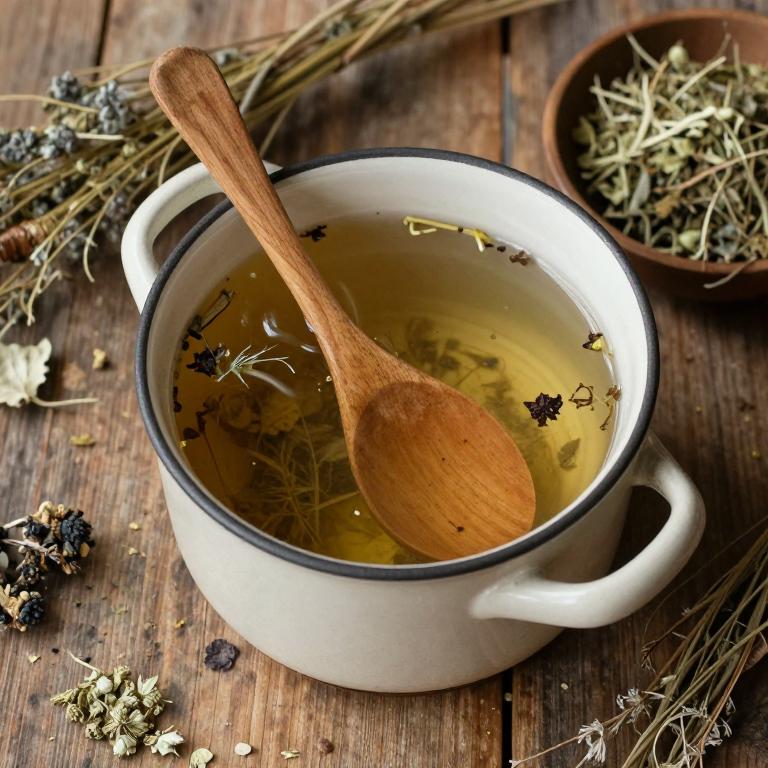
Valeriana officinalis, commonly known as valerian, is a traditional herbal remedy that has been used for centuries to address various health conditions, including premenstrual syndrome (PMS).
Its herbal decoctions are prepared by simmering the dried roots in water, creating a calming infusion that is often consumed during the days leading up to menstruation. Studies suggest that valerian may help alleviate common PMS symptoms such as anxiety, irritability, and sleep disturbances due to its sedative and anxiolytic properties. The herb is believed to interact with the central nervous system, potentially modulating neurotransmitter activity to promote relaxation and emotional balance.
While generally considered safe, it is important to consult a healthcare provider before using valerian, especially for individuals with existing medical conditions or those taking other medications.
5. Black cohosh (Cimicifuga racemosa)
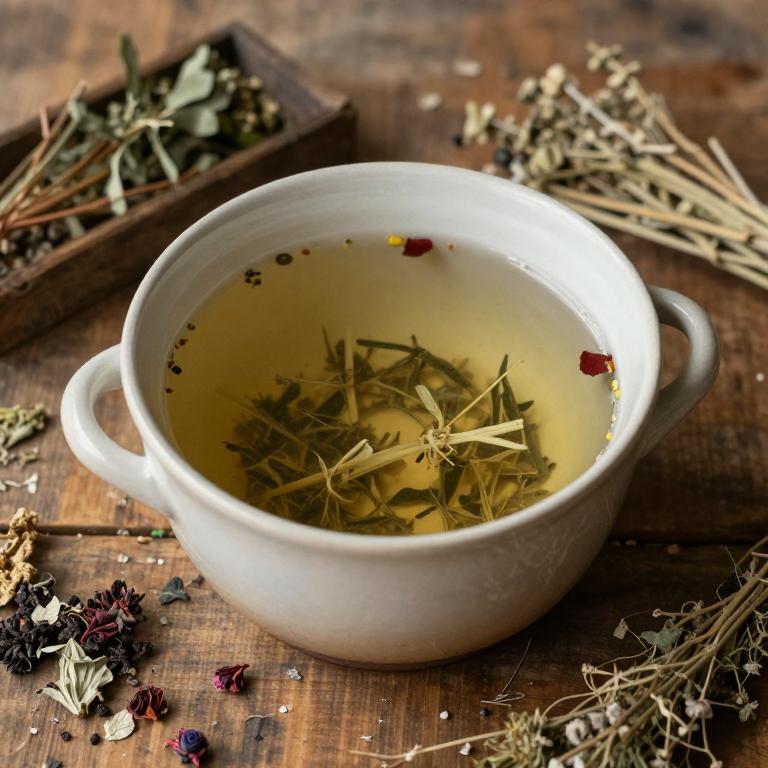
Cimicifuga racemosa, commonly known as black cohosh, is a herbal remedy that has been traditionally used to alleviate symptoms of premenstrual syndrome (PMS).
Herbal decoctions made from the roots of Cimicifuga racemosa are often prepared by boiling the dried root in water to extract its active compounds. Clinical studies suggest that these decoctions may help reduce menstrual cramps, mood swings, and breast tenderness associated with PMS. The active ingredients, such as triterpene glycosides and flavonoids, are believed to exert their effects through hormonal modulation and anti-inflammatory properties.
However, it is important to consult a healthcare provider before using black cohosh, as it may interact with certain medications and is not recommended during pregnancy or breastfeeding.
6. Heartworts (Leonurus cardiaca)
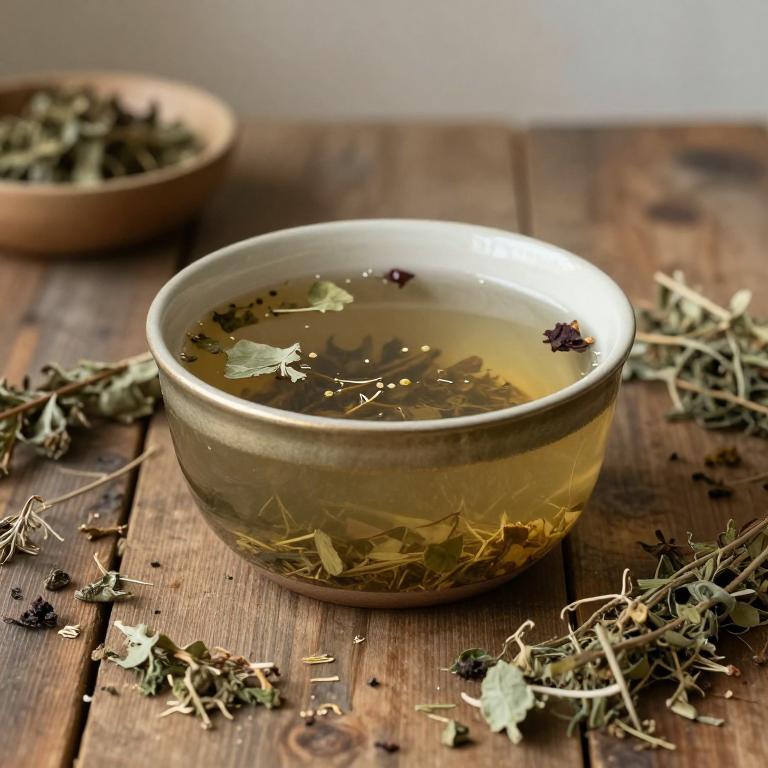
Leonurus cardiaca, commonly known as motherwort, has been traditionally used in herbal medicine for its potential benefits in managing premenstrual syndrome (PMS).
Herbal decoctions made from the dried leaves and flowers of Leonurus cardiaca are often prepared by simmering the plant in water for several minutes, resulting in a calming and soothing infusion. This herb is believed to help alleviate common PMS symptoms such as irritability, anxiety, and breast tenderness due to its mild sedative and antispasmodic properties. Some studies suggest that the active compounds in motherwort may support hormonal balance and reduce inflammation, contributing to its efficacy in PMS management.
However, it is important to consult a healthcare provider before using Leonurus cardiaca, especially for individuals with existing health conditions or those taking medications.
7. Lemon balm (Melissa officinalis)
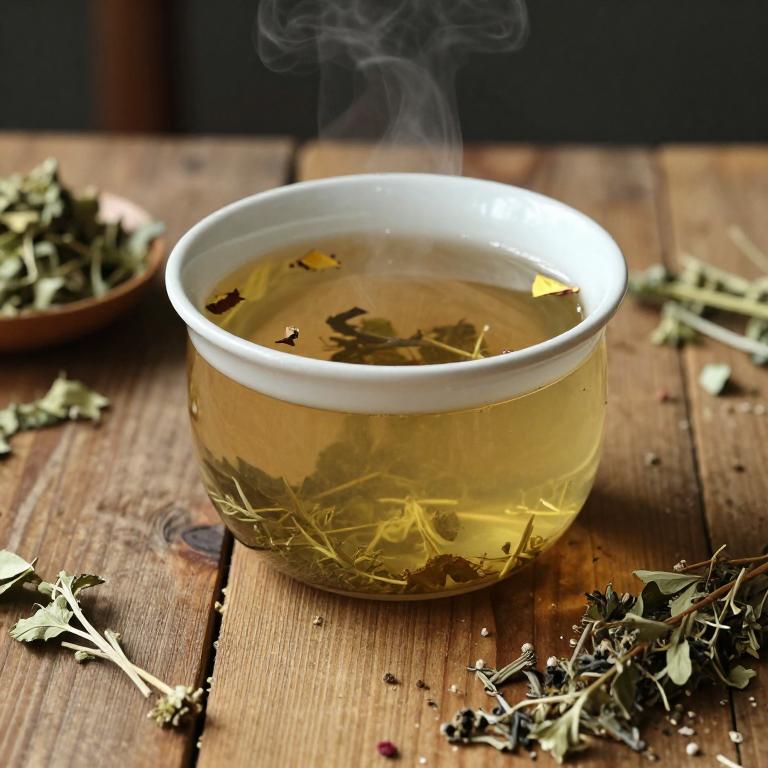
Melissa officinalis, commonly known as lemon balm, has been traditionally used to alleviate symptoms of premenstrual syndrome (PMS).
Herbal decoctions made from its leaves are believed to have calming and anxiolytic properties that may help reduce emotional disturbances such as irritability and anxiety associated with PMS. Studies suggest that the essential oils and flavonoids present in lemon balm may influence neurotransmitter activity, promoting relaxation and mood stability. When prepared as a decoction, Melissa officinalis is often consumed as a tea, offering a mild and soothing effect.
While more research is needed, many women find it beneficial as a natural complement to conventional PMS management strategies.
8. Black cumin (Nigella sativa)
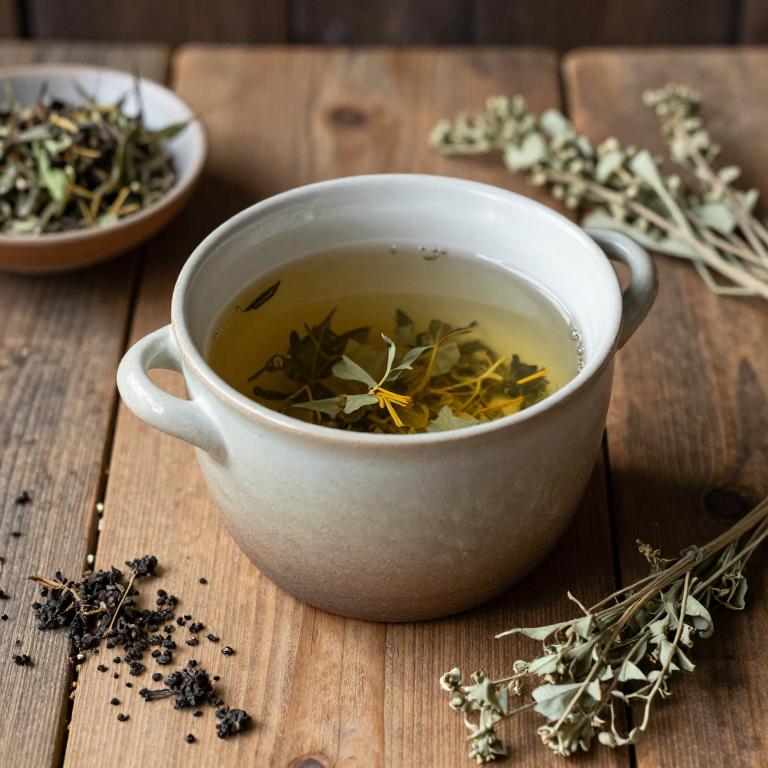
Nigella sativa, commonly known as black cumin, has been traditionally used in herbal medicine for its potential health benefits, including its possible role in alleviating symptoms of premenstrual syndrome (PMS).
Herbal decoctions made from the seeds of Nigella sativa are believed to possess anti-inflammatory, antioxidant, and mood-regulating properties that may help reduce common PMS symptoms such as bloating, mood swings, and irritability. Studies have shown that the active compound thymoquinone in nigella sativa may influence hormonal balance and reduce oxidative stress, both of which are linked to PMS. While more research is needed to confirm its efficacy, some women report improved well-being after incorporating nigella sativa decoctions into their menstrual cycle management.
As with any herbal remedy, it is advisable to consult a healthcare provider before use, especially for those with existing medical conditions or who are pregnant.
9. German chamomile (Chamomilla recutita)

Chamomilla recutita, commonly known as German chamomile, has been traditionally used to alleviate symptoms of premenstrual syndrome (PMS).
Herbal decoctions made from its dried flowers are often consumed as tea or taken in capsule form to provide relief from mood swings, irritability, and cramping associated with PMS. Studies suggest that the essential oils in chamomile, particularly bisabolol and apigenin, may have anti-inflammatory and anxiolytic properties that contribute to its effectiveness. Clinical trials have shown promising results in reducing PMS symptoms, although more research is needed to establish standardized dosages and long-term safety.
As a natural remedy, chamomilla recutita offers a potentially safe and accessible option for women seeking alternative treatments for PMS.
10. Maypop (Passiflora incarnata)
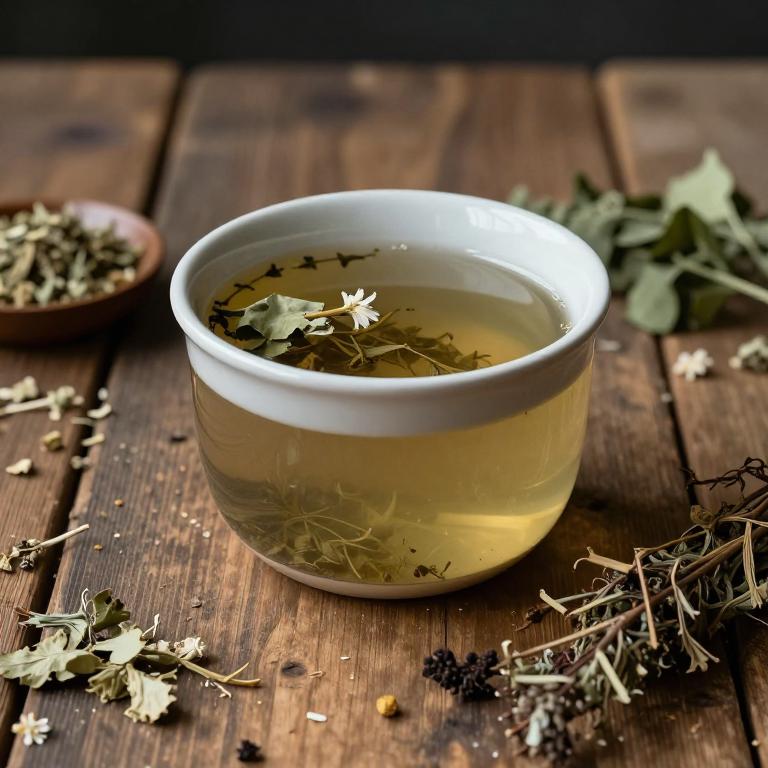
Passiflora incarnata, commonly known as passionflower, has been traditionally used in herbal medicine for its calming properties, and recent studies suggest it may be beneficial in alleviating symptoms of premenstrual syndrome (PMS).
Herbal decoctions made from the leaves and flowers of Passiflora incarnata are often prepared by steeping the dried plant material in hot water, creating a soothing tea that can be consumed regularly. These decoctions are believed to work by influencing the nervous system, potentially reducing anxiety, irritability, and mood swings associated with PMS. Clinical trials have shown promising results in reducing PMS symptoms, though more research is needed to fully understand its mechanisms and long-term efficacy.
As a natural remedy, Passiflora incarnata decoctions offer a potentially safe and accessible option for women seeking alternative relief from PMS symptoms.